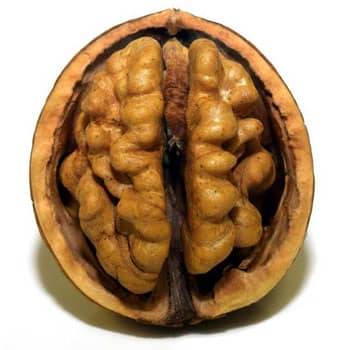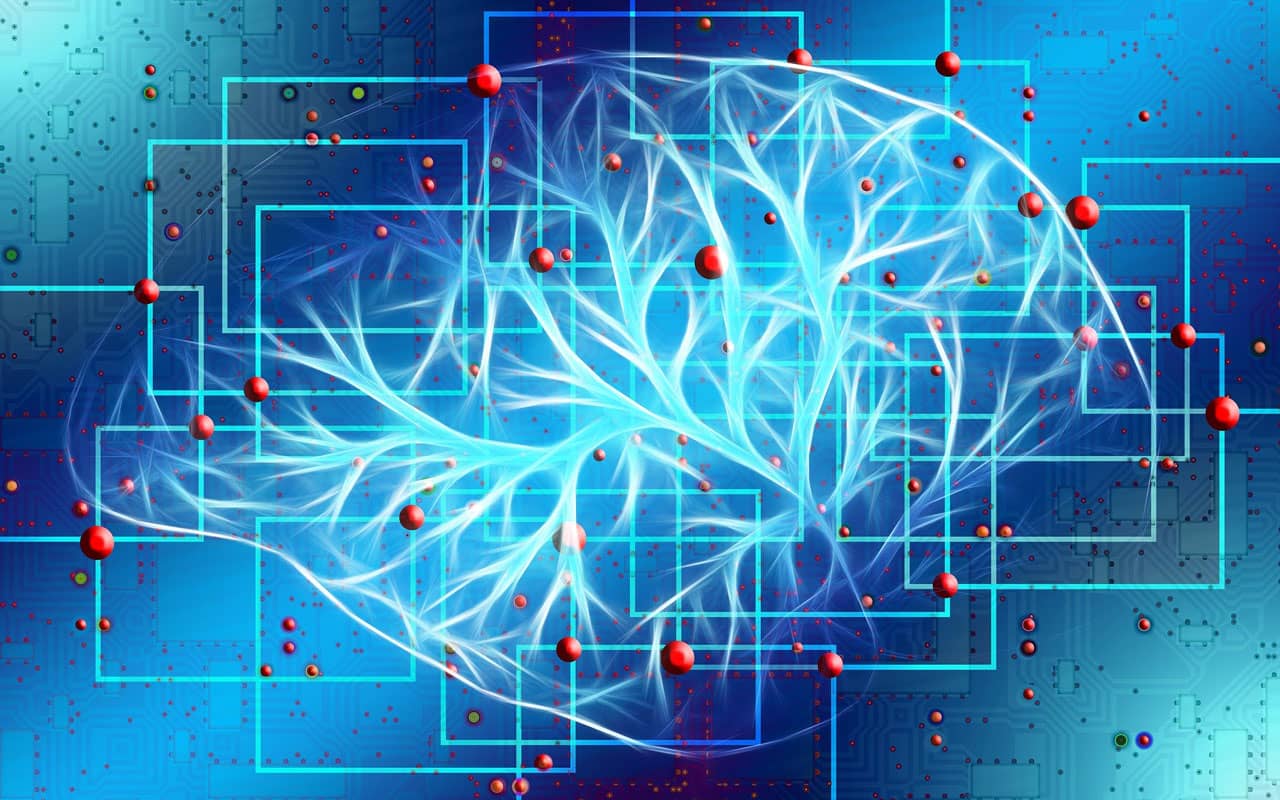Podcast: Download
Subscribe: Apple Podcasts | RSS

Amanda: “Yeah, he was great! Creative, definitely! But intelligent?”
Jane: “It’s the same. You don’t need to be a mathematician or scientist to be intelligent.”
And so the argument continues.
But what is intelligence, really? Do you have fluid intelligence or crystal intelligence?
In this post, I’ll delve into the two types of intelligence (Fluid Intelligence and Crystallized Intelligence), examine how they work together, and talk about which one is more important. You’ll also learn 5 magnetic ways to build razor-sharp intelligence.
Here’s what we’ll cover:
- What is Intelligence?
- What is Fluid Intelligence?
- What is Crystallized Intelligence?
- Can Fluid and Crystallized Intelligence Work Together?
- Is Fluid Intelligence More Important Than Crystallized?
- 5 Magnetic Ways to Keep Your Fluid and Crystallized Intelligence Sharp?
What is Intelligence?
Many of the world’s most ‘intelligent’ scientists, researchers, and psychologists have been debating ad infinitum over a standard definition of intelligence.
For our understanding, intelligence is your ability to learn new information and use that knowledge to identify and solve problems.
You are deemed intelligent (read: smart) if you can use logic, reasoning, quick thinking, and planning to conduct daily activities effectively.
The good news?
You are not born with finite intelligence. You can boost your intelligence and thereby your social capital by using a proper memory method. (More about this later).
Are There Different Types of Intelligence?
Yes. Intelligence is subdivided into two distinct types — fluid intelligence and crystallized intelligence. They also go by the nicknames of gf and gc, where “g” stands for general intelligence.
The theory of fluid and crystal intelligence was first proposed by psychologist Raymond Cattell in 1963. He referred to the ability to reason as fluid intelligence, and the capacity to acquire knowledge as crystallized intelligence.
The concept was further developed by his student, John L. Horn, in the 1970s and 1980s. Their findings came to be known as the Cattell-Horn Theory of Intelligence.
The natural intelligence displayed by humans is very different from artificial intelligence (AI), which is intelligence demonstrated by machines. Our intelligence also differs in its cognitive capabilities from that demonstrated by open-source intelligence, which uses information collected from publicly available data sources. That’s not to mention our intelligence for developing concentration and memory through meditation.
A Fun Definition of Fluid Intelligence
Once, at a Paris hotel, my shower wasn’t working. I had checked in late at night, so there was no possibility of calling the plumber.
But I did manage to take a quick bath.
I used the Indian bucket bath method: where instead of a bucket and jug, I filled the drinking glass with water from the tap to pour over my body.
Genius, or what?
It was my fluid intelligence hard at work to come up with a novel solution to a unique problem.
Fluid intelligence is your ability to analyze, reason, and think out-of-the-box to find original solutions to new problems.
Your fluid intelligence uses logic in new situations or tasks, recognizes patterns, and incorporates abstract reasoning towards problem-solving.
Often, fluid intelligence is used when you solve math problems or jigsaw puzzles. You also use fluid intelligence when you start plucking on a guitar without prior training.
Your fluid intelligence does not depend on previously acquired knowledge. A person who is ‘street smart’ uses his fluid intelligence very effectively.
Fluid intelligence depends on your working memory, which is stored in the prefrontal cortex of your brain. It is governed by the anterior cingulate cortex and dorsolateral prefrontal cortex — regions of the brain responsible for attention and short-term memory.
More Examples of Fluid Intelligence
You use your fluid intelligence when you:
- Identify patterns in logical reasoning questions,
- Assemble a complex jigsaw puzzle using a picture,
- Develop strategies or a game plan to solve problems,
- Think outside the box when solving problems, or
- Eliminate unwanted information when you conduct research.
There is bad news, though.
Fluid intelligence starts to decline with age, sometimes even as early as your 20s or young adulthood. Therefore, cognitive functions in elderly people may be reduced.
However, there are ways to keep it sharper and stronger even as you age. (We’ll come to that soon!)
Next, let’s look at crystal intelligence.
A Quick Definition of Crystal Intelligence
Crystal intelligence or crystallized intelligence is your ability to use knowledge and information previously learned over the years.
This type of intelligence is what you acquire through education and experience. Crystal intelligence gets cemented in the hippocampus, neocortex, and amygdala — parts of the brain that store and use long-term memories.
You use crystal intelligence when you do long division, or learn a new language. These tasks also require focused attention.
Ultimately, these terms are measurable. You can literally test and measure it through your grasp of vocabulary, grammar, reading comprehension, and your competence in quizzes and game shows.
Both internal and external factors impact the development of crystallized intelligence.
Internal factors include your innate curiosity and motivation to learn new things. External factors are the surroundings that you grew up in — your family, educational institutions, and society in general.
Examples of Crystallized Intelligence
Crystal intellect is at work when you:
- Answer questions related to history or geography in a quiz. (For example, when did Columbus first arrive in America?)
- Learn and speak different languages.
- Know the exact ingredients used to prepare your favorite dishes.
- Learn new words in your native language.
- Memorize new maths formulae or facts
- Conduct a surgery on a patient.
- Remember the demographic statistics of a country you’re reading about.
The good news is: since crystal intelligence relies on the accumulation of knowledge, it is usually maintained with age. It peaks and declines much later in life as compared to fluid intelligence.
Interestingly, research shows that elderly people are valuable as workers as they make up for a decline in fluid intelligence with crystallized intelligence.
Cautionary note: While stronger intelligence may give you a head start in life, it may not prevent you from being affected by Alzheimer’s disease.
You may wonder: do these two types of intelligence cooperate?
Can Fluid and Crystallized Intelligence Work Together?
Turns out, fluid and crystallized intelligence are great team players.
Even though they are two distinct types of intelligence that cover different cognitive abilities of the brain, they work together more often than you might imagine.
For example, when you DIY a table, you use the woodworking skills your dad taught you years ago. This is your crystal intelligence. You figure out which raw materials to use, which tools to use, and how to follow a detailed design.
You also use fluid intelligence to reason and find solutions to any hurdles you face — for example, maybe a certain tool is not available and you need to find a substitute.
This solution is then transferred to long-term memory and becomes part of your crystal intelligence. If you face the same problem in the distant future, the solution would be retrieved from your long term crystal memory.
Use of Fluid and Crystal Intelligence When Cooking
Here’s another example of the interwovenness of fluid and crystallized intelligence:
When you cook a meal, which actually provides a decent brain workout), you utilize your crystallized intelligence to understand and follow the recipe. However, if you modify the spices or find substitutes for some ingredients according to your tastes and dietary requirements, you are utilizing your fluid intelligence.
These forms of intelligence seem quite different, but is one more important than the other?
Is Fluid Intelligence More Important Than Crystallized?
Not at all.
Both types of intelligence are equally important to function well in everyday life.
As I discussed earlier, fluid intelligence is directly related to being creative and innovative (i.e., your street smarts). Crystal intelligence, on the other hand, relies on being book smart.
However, today’s education system and our dependence on technology may deprive our brain of developing its natural aptitude for creative problem-solving.
Educational institutes even resort to the Wechsler Intelligence Test or other IQ tests to determine the cognitive skills in students based only on crystal intelligence. Many cognitive training tasks also give more importance to developing crystallized intelligence.
However, I believe the goal should be to strengthen your overall intelligence — be it crystal or fluid.
Crystal intelligence is closely linked to long-term memories. Fluid intelligence is, however, associated with short-term memory or working memory.
Research says that if working memory is deficient, the ability to acquire knowledge and related skills will be limited. A study by Susan Gathercole and Tracy Alloway showed that “working memory functions as a bottleneck for learning in individual learning episodes required to improve knowledge.”
But what does that mean?
In simple terms: you need to develop your fluid intelligence to enable your crystal intelligence to work well!
Let’s look at how you can do just that.
5 Magnetic Ways to Sharpen Your Fluid and Crystallized Intelligence
Here are five great ways to improve both types of intelligence.
1. Create Memory Palaces
When you build memory palaces using the Magnetic Memory Method, you are using both fluid and crystal intelligence in ways that enable you to improve them.
The Magnetic Memory Method Memory Palace is a powerful way to train the brain regions that govern your fluid and crystal intelligence.
It’s also a better method for remembering and learning information than using other techniques like mind mapping on its own because you’re innovating and drawing upon existing mental content at the same time.
Plus, any time you can combine intelligence and memory strengthening, you get holistic improvement of all levels of memory. You can move short-term memory into long-term memory faster (and permanently) with a minimum amount of practice.
2. Get Creative
It is believed that to be creative, you don’t have to come up with original ideas all the time. You’re creative just by finding new connections between existing ideas.
This could be as simple as finding a new route to go to work, starting new eating habits, or adding new ingredients to a pasta recipe you’ve stuck to for years.
Or, if you’re an artist, simply abandon your tools for a while and wander outside or travel to a new place. Inspiration for your next masterpiece may strike you from unexpected places.
And sometimes constraints fuel creativity, so set yourself time and space limits to complete a project.
3. Challenge Your Brain
Technology has made everyday life so easy for all of us — so switching off is a great way to challenge your brain.
Remember the saying “use it or lose it” and unplug from your devices every once in a while. For instance, navigate to a new landmark in your city without a GPS.
Seeking new experiences, learning new skills, and staying busy with hobbies and people are great ways to keep your fluid and crystal intelligence sharp.
You might also learn a new language, watch a new genre of movies, play memory games, read on a topic that is alien to you, or just try using your non-dominant hand for a few everyday activities.
4. Meditate Regularly
Mindfulness meditation is a way to engage new neural pathways in your brain. Research has proven that this neurostimulation can transform your body and brain positively.
This form of active brain training can improve your focused attention, long term retention and recall, and your working memory capacity, which are all important aspects of your fluid and crystallized intelligence.
5. Get a Good Night’s Sleep
Want to get a sharper memory? Get more sleep.
As counterintuitive as this may sound, sleep can sharpen your intellect. In fact, sleep is one of nature’s most ignored memory-boosters.
If you’re well-rested, you stay alert and attentive throughout the day — which positively affects your ability to retain more and learn new things like riding a car or learning a new language.
Boost Your Intelligence, Magnetically
Memory science is important and worth reading, but you are the ultimate scientist in the laboratory of your own memory and intelligence.
Why not get cracking at a new intelligence-boosting experiment with me today? Register for my free course, and I’ll send you my free memory improvement worksheets and videos.











Very helpful information thx
Thanks for checking it out, Sushma. It’s great to see you here!
These methods are classic ways of keeping up your cognitive reserves. So important to do so as you age as it helps to preserve you against some of the more difficult ways in which you can be beset by illness, for example by dementia or Alzheimers.
Thanks for the explanation about the difference between fluid and crystal intelligence too.
Thanks for stoping by, Rosemary.
Yes, we do need to keep up with these matters in order to fortify the brain. Constant learning and taking on challenges is a great way to do it.
I know there are more intelligences than these, but perhaps these are the most important for learning how and why we experience losses and gains the way we do.
I love that our community of people who are focused on the gains is growing and am always grateful each and every time you join the conversation. Looking forward to your next post soon! 🙂
Thank you. I loved the way you cited examples for a better understanding of both fluid and crystal intelligence.
Thanks, Bedanta.
Are you currently working on improving both of them?